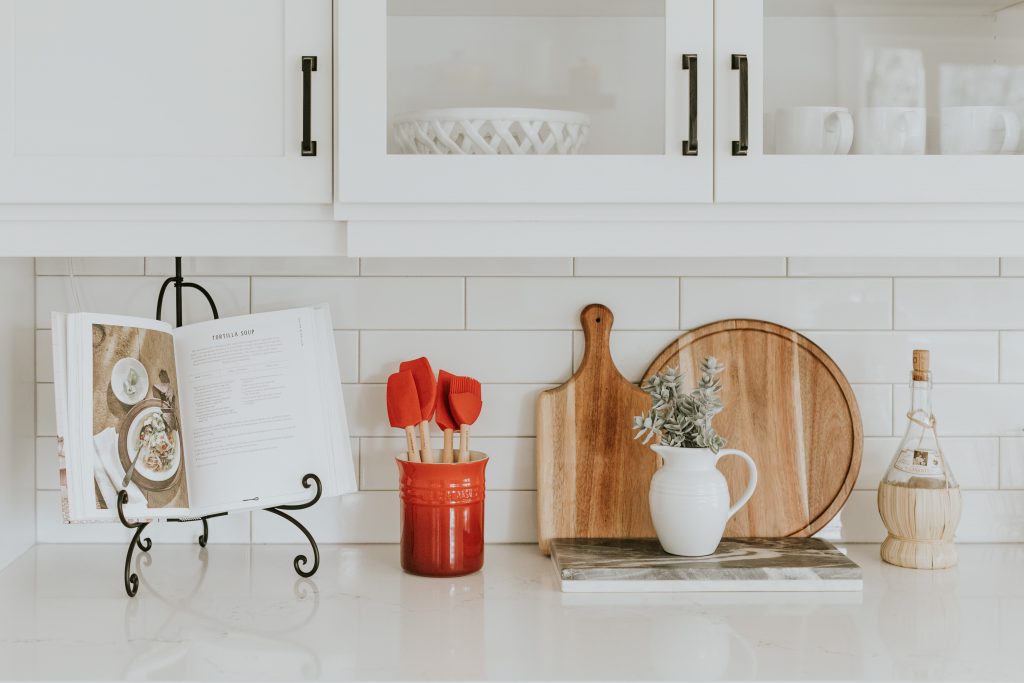
From cooking messes to accidental spillages, the kitchen is one of the busiest work spaces in the house – making regular cleaning all the more important. Whether it’s removing tough stains or ensuring a shiny sink, here are some fuss-free cleaning hacks for a spotless kitchen!
1. Strike While the Mess is Hot

Prevent stains by cleaning spills as soon as possible
Spills and splatters can harden when cooled, so it’s best to clean up as soon as possible. This also prevents spills from seeping into the crevices or grout lines, which may lead to permanent stains. When cleaning stovetops, be sure to have your trusty mittens to prevent burns – consider opting for a silicon pair as these mittens are both heat and water resistant!
2. Wipe Down Before Washing Up

Tip: After wiping down, soak your pots and pans in hot water to help remove oil
Ever washed a used pot or pan, only to find it oily as ever? As polar liquids (water) do not mix with non-polar liquids (oil), water itself is not enough to remove oil. By wiping before you wash, you remove most of the excess oil and use less soap. There is also less oil to wash off, so you reduce time spent at the sink.
3. Cleaning with Baking Soda

Baking soda can also be used to clean utensils
Cleaning gurus swear by baking soda as a cheap and effective cleaning agent. For spotless sinks, simply sprinkle some baking soda over the surface, add warm water, let the solution settle for a few minutes then scrub the sink! For tougher stains, adding a dash of vinegar into the solution should do the trick.
Dirt stuck in the grout lines of your kitchen tiles? Mix equal parts baking soda and water for a cleaning paste. Apply paste to the grout and scrub with a brush! Did you also know that baking soda can help with unclogging sinks too? Here’s another cleaning hack for you!
4. Dry the Dishes

Dry your dishes even after leaving them on the dish rack
It may sound cumbersome, but wiping your crockery and cutlery after washing, even if they will be left to dry on the dish rack, can prevent slimy deposits, water stains, and mould. Doing so also stops puddles from forming on countertops, which may be damage the material.




